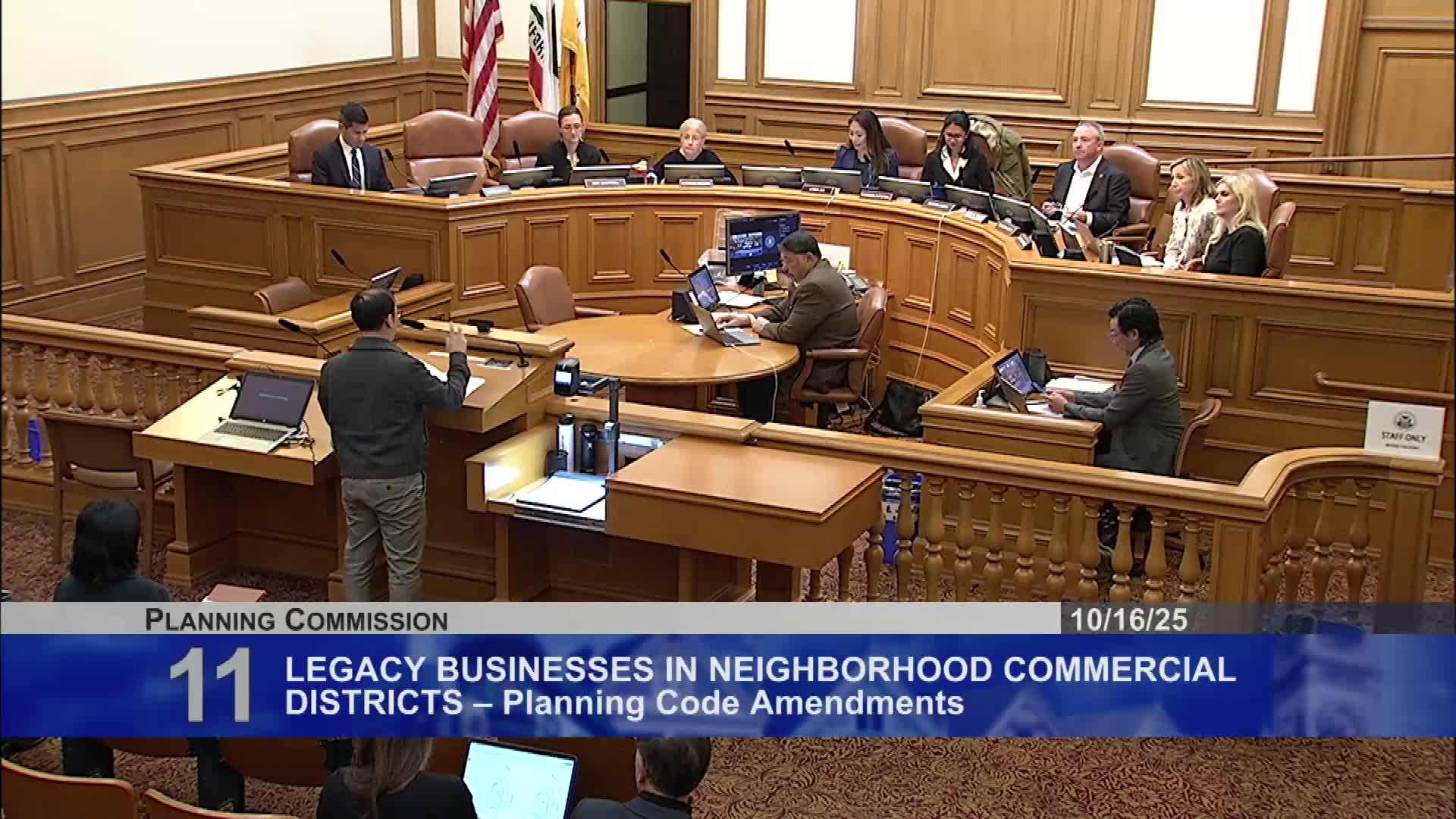Planning Commission recommends disapproval of ordinance to require CU hearings for storefronts vacated by legacy businesses
Get AI-powered insights, summaries, and transcripts
Subscribe
Summary
After hours of testimony, the commission voted 4–2 to recommend disapproval of Supervisor Connie Chan’s ordinance that would require Conditional Use Authorization (CUA) hearings for storefronts previously occupied by legacy businesses across neighborhood commercial districts.
The San Francisco Planning Commission on Oct. 16 voted 4–2 to recommend denial of an ordinance that would have required a conditional use authorization (CUA) for any new business occupying a storefront previously held by a legacy business across neighborhood commercial districts and Chinatown mixed‑use areas.
Calvin Yan, appearing for Supervisor Connie Chan, read a letter urging protections for long‑running small businesses threatened by upzoning and rising speculation. “The upzoning plan will allow significant speculation real estate investment, which will put tenants, especially those who live in rent control units and small businesses, particularly those that have been operating their businesses for generations at great risk of displacement,” Yan read into the record from the supervisor’s letter.
Planning staff recommended disapproval. Lisa Gluckstein told commissioners the department supports legacy‑business preservation in principle but argued a CUA is the wrong land‑use tool for primarily economic pressures. Staff highlighted operational concerns: CU review is designed to analyze physical and use impacts, not economic displacement; the requirement could discourage landlords from leasing to legacy businesses and lengthen vacancies. The staff report noted interim controls introduced in 2024 will expire in May 2026 unless replaced and corrected the record on other districts where legacy business controls exist.
Speakers from small‑business advocacy groups supported the ordinance. Peter Stevens of Build Affordable Faster California and Kristen Evans of Small Business Forward urged stronger protections for legacy businesses and recommended keeping CUA requirements until state law provides broader commercial tenant protections. Carrie Birnbach of the Office of Small Business summarized the Small Business Commission’s earlier recommendations, which included notification processes, relocation assistance tracking, incentives for warm‑shell build‑outs and exploring a mitigation fund; the Small Business Commission had voted 4–0 to support the family zoning plan but did not recommend this specific CUA approach.
Commissioners debated whether land‑use tools are the right mechanism to address commercial displacement. Commissioner McGarry moved to adopt staff’s recommendation for disapproval; the motion passed on a 4–2 vote (Campbell, McGarry, Braun and Soh voting yes; Imperial and Vice President Moore voting no). Planning staff had also read into the record minor corrections to the proposed resolution’s boilerplate language to make the department’s negative recommendation explicit.
Supporters of the ordinance argued the measure would provide a discretionary public hearing to scrutinize speculative takeovers of storefronts and give neighborhood stakeholders a venue to raise displacement concerns. Critics — including multiple commissioners and planning staff — argued CUA requirements could create new barriers to small businesses, prolong vacancies and address economic problems with land‑use controls better handled through direct financial assistance, relocation support and state‑level reforms such as commercial rent protections.
The commission’s recommendation will be transmitted to the Board of Supervisors; the staff report and public comments urged that the city prioritize direct assistance measures for small businesses and consider other policy tools in parallel with any zoning changes.
